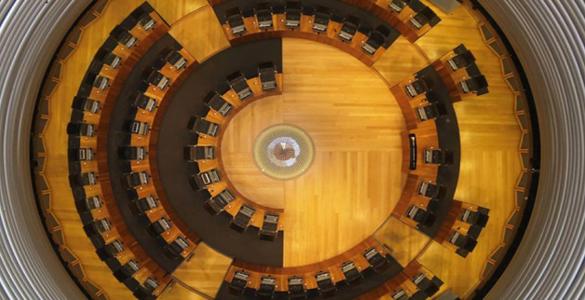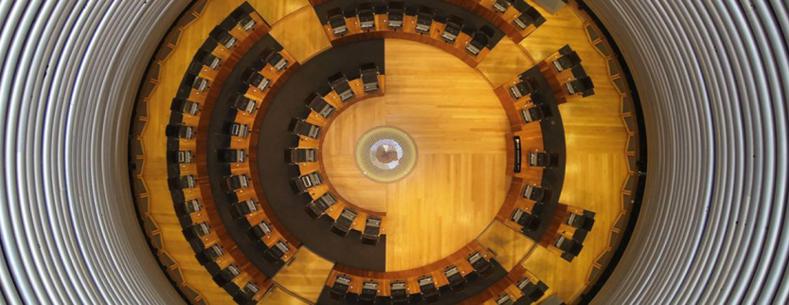Parliamentarians from across the UK have met in the Senedd for the second meeting of the Interparliamentary Forum (IPF).
Members of both Houses of the UK Parliament, as well as the Scottish Parliament and the Senedd, met on Friday 28 October to discuss key issues such as the Northern Ireland Protocol, intergovernmental relations and retained EU law.
What is the Interparliamentary Forum?
Since the creation of the devolved UK legislatures in the late 1990s, relations between parliaments in the UK developed in an ad hoc manner, and have generally been fairly limited in frequency and scope.
Select Committees from across UK legislatures called for greater and more formalised interparliamentary structures following the Brexit referendum in 2016. Areas of devolved policy that were previously subject to EU law, such as large sections of environmental law, were transferred to a national level. This created the possibility of further divergence between the nations of the UK. A number of intergovernmental initiatives were established to manage this possible divergence, including Common Frameworks and the review of intergovernmental relations.
Agreements between the UK and devolved governments on how to manage divergence in certain policy areas formerly governed or coordinated at EU level. Policy areas subject to Common Frameworks include public procurement, animal health and welfare, agricultural support, chemicals, and public health protection and health security.
A new agreement on intergovernmental relations in the UK, published in January 2022. It replaces the Joint Ministerial Committee, which had been criticised by some, including former First Minister of Wales, Carwyn Jones, for leaving final decision-making responsibilities with the UK Government. The new agreement creates three new tiers for interministerial engagement, as well as a new dispute resolution process. It will also have its own independent secretariat.
Alongside new intergovernmental structures, parliamentarians also called for new interparliamentary working to scrutinise governments. In 2017, the House of Lords EU Committee recommended that “the structures for interparliamentary dialogue and cooperation be strengthened”. This led to the creation of the Interparliamentary Forum on Brexit.
The Interparliamentary Forum on Brexit met eight times between 2017 and 2019, but lost momentum around the 2019 UK general election and the subsequent outbreak of the coronavirus pandemic.
Following discussions between the Lord Speaker and the Speakers and Presiding Officers of the Northern Ireland Assembly, Scottish Parliament and the Senedd, a new iteration of the IPF met for the first time at the House of Lords in February 2022. In a joint statement, the Forum described its first meeting as an important start for the “vital dialogue and cooperation between parliamentarians”.
What was discussed in the IPF’s second meeting?
The Senedd welcomed representatives of committees from the Lords, Commons and Scottish Parliament for the second meeting of the IPF on 28 October. The chair of the Senedd’s Legislation, Justice and Constitution Committee, Huw Irranca-Davies, chaired the meeting.
After a welcome from the Llywydd, attendees discussed the implications of UK Bills on the Northern Ireland Protocol and retained EU law, as well as the new agreement on intergovernmental relations and the Sewel Convention.
The Forum issued a statement following their discussions that recognises the “increasing concern across each of our legislatures […] in relation to the scope of delegated powers in UK legislation related to EU exit.”
The Counsel General, Mick Antoniw, addressed the Forum setting out the Welsh Government’s position on issues such as Sewel.
What happens next?
The IPF is likely to meet again in spring 2023. Intergovernmental meetings under the new agreement are likely to resume shortly, following the cancellation of several meetings earlier in the autumn.
Article by Philip Lewis, Senedd Research, Welsh Parliament






